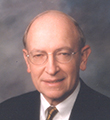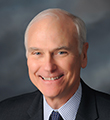Kansas Legislative Insights Newsletter | January 26, 2018
A Close Call
Vice President Mike Pence, fresh from his state visit to Israel, arrived back in Washington, D.C. just in time to break two tie votes on the U.S. Senate floor Wednesday relating to Governor Brownback’s confirmation as the U.S. Ambassador for International Religious Freedom. The first tie vote (49-49) was procedural, while the second tie (again 49-49) was on the actual confirmation motion.
Gaining confirmation had been an unusually difficult challenge for the governor as all Senate Democrats opposed his appointment, and health problems had kept a couple of the Republican senators from always being present during the past month. Although a specific date has not been set for Brownback to commence his new post, he has announced he will resign as governor effective at 3:00 p.m. on Wednesday, Jan. 31 and Lt. Gov. Jeff Colyer will be sworn in as governor in the same hour.
And Colyer Makes Five
When he is sworn in next week, Dr. Jeff Colyer will become the fifth Kansas Lt. Governor to ascend to the governorship upon the resignation of the sitting governor. Nehemiah Green (1868), Fred Hagaman (1950) and John McCuish (1957) did so and each served only a few days or a couple of weeks.
However, if Colyer finishes Brownback’s term next January, he will then have served nearly a year as a non-elected governor. The only non-elected governor to serve a longer period of time (twenty months) was Lt. Gov. Mark Parkinson, who became governor when Kathleen Sebelius resigned to become Secretary of Health and Human Services in the Obama administration.
Colyer has already served longer (over seven years) than any Lt. Gov. in Kansas history, and one of his first responsibilities as governor will be to appoint someone to serve as Lt. Governor until next January. As expected, that creates a lot of speculation in the statehouse as to who that appointee will be.
Some New Bricks
The State Finance Council finally voted (6-3) this week to approve a lease-buy agreement with CoreCivic, a private prison developer, for a new $362 million prison complex at Lansing.
Action on this major project had been stalled for some time as Governor Brownback, who serves as chairman of the council, had difficulty rounding up the six (out of nine) votes necessary for approval.
That elusive sixth vote was finally secured earlier in the week. Statehouse pundits noted that the sixth vote was secured about the same time Governor Brownback (and soon-to-be governor Colyer) agreed to back away from implementing KanCare 2.0 – a privatized program for handling the state’s Medicaid program - which was certain to be even more controversial than the current KanCare 1.0 program.
Bill Summaries
Listed below are some selected bills from among the dozens of bills introduced this week. Even more introductions are expected next week as the first deadline for bill requests occurs on Monday, January 29th.
Additional information on any of the bills listed below can be accessed by clicking on the bill number.
AGRIBUSINESS
SB 320 – Sets a maximum of twenty and a minimum of five first year veterinary students who can enter the veterinary training program for rural Kansas each year. (Referred to the Senate Committee on Agriculture and Natural Resources, Senator Dan Kerschen, chair)
BUSINESS
SB 307 – Amends the Kansas Amusement Ride Act to include “home-owned amusement rides” and “registered agritourism activities” as defined. Specifies that such entities must have valid permits and a required amount of insurance to operate. (Referred to the Senate Committee on Federal and State Affairs, Senator Bud Estes, chair)
SB 324 – Creates the Vehicle Dealers and Manufacturers Licensing Act that sets standards for facility improvements, performance measurements and recall repairs. (Referred to the Senate Committee on Transportation, Senator Mike Petersen, chair)
HB 2517 – Defines what constitutes an “instant bingo vending machine” and a “lottery ticket vending machine.” Also defines what they are not. Specifies where such machines can be located and how revenues from the machines are to be distributed. (Referred to the House Committee on Appropriations, Rep. Troy Waymaster, chair)
HB 2527 – Makes the use of an “automated sales suppression device” or “zapper” in defined transactions a severity level 6, non-person felony. (Referred to the House Committee on Taxation, Rep. Steve Johnson, chair)
HB 2532 – Provides that the Kansas Roofing Contractor Registration Act does not apply to certain types of commercial property. (Referred to the House Committee on Commerce, Labor and Economic Development, Rep. Les Mason, chair)
HB 2533 – Requires that any authorized “sports gambling,” as defined, must be conducted solely at a racetrack gaming facility and managed and operated by one or more racetrack gaming facility managers. (Referred to the House Committee on Federal and State Affairs, Rep. John Barker, chair)
ENERGY
HB 2513 – Starting Jan. 1, 2019, surface water sold at retail by a public supply system or appropriated for industrial use would be subject to a surface water protection fee at a rate of $.05 per 1,000 gallons of surface water. Authorizes certain expenditures that can be made with the fees collected under the act. Also requires water assurance district to impose a similar fee. The fee would be discontinued when the fee fund reaches a certain level. (Referred to the House Committee on Water and Environment, Rep. Tom Sloan, chair)
HB 2518 – Grants municipal energy agencies exemption from the jurisdiction, regulation, supervision and control of the State Corporation Commission (
HB 2528 – Provides for the transfer of $8 million each year from the Economic Development Initiatives Fund (EDIF) to the State Water Plan Fund. Further specifies that at least half of transfer must be used for specified purposes. (Referred to the House Committee on Water and Environment, Rep. Tom Sloan, chair)
FINANCIAL SERVICES
SB 292 – Amends the credit union statutes regarding expulsion of a member from a credit union. Also alters the process by which an expelled member may appeal the expulsion. (Referred to the Senate Committee on Financial Institutions and Insurance, Senator Jeff Longbine, chair)
HEALTH CARE
HB 2495 – The bill would amend the Developmental Disabilities Reform Act as it relates to failure of community service providers to comply with applicable law. The bill would authorize the Secretary of the Department for Aging and Disability Services to inspect and review the operations of community providers and identify deficiencies when a provider has failed to comply with regulations established pursuant to the Developmental Disabilities Reform Act or any other law. The bill outlines requirements for mediation, the possible need for a plan of correction, and a maximum civil penalty in the amount of $125 per day being assessed against a noncompliant provider. The bill would also provide the Secretary authority to require the noncompliant community provider to maintain consumers in place until alternative community services can be secured. (Referred to House Committee on Health and Human Services, Rep. Daniel Hawkins, chair)
SB 304 – The bill provides rules for the management of step therapy protocols by health insurance plans. Step therapy protocols are sequenced programs for coverage of prescription drugs by health insurance plans. The Kansas Insurance Department is directed to adopt rules and regulations as necessary to implement and administer the law changes. (Referred to the Senate Committee on Public Health and Welfare, Senator Vicki Schmidt, chair)
SB 305 – The bill empowers the Kansas Department of Health and Environment to regulate certain, but not all, drop-in programs for children. Drop-in programs are programs serving school-aged children and youth where the operator of the program permits children and youth to arrive at and depart from the program location at the child’s or youth’s own volition. (Referred to the Senate Committee on Public Health and Welfare, Senator Vicki Schmidt, chair)
SB 300 – The bill would prohibit substantial modification of the current operation of the state medical assistance program without prior legislative approval. (Referred to the Senate Committee on Ways and Means, Senator Carolyn McGinn, chair)
HB 2501 – The bill would amend K.S.A. 2017 Supp. 39-936 and K.S.A. 2017 Supp. 39-979 along with other laws in order to establish a health occupations credentialing fee fund to be administered by the Kansas Department of Aging and Disability Services. The focus here is on employees of adult care homes. (Referred to the House Committee on Health and Human Services, Rep. Daniel Hawkins, chair)
HB 2503 – The bill would amend 2017 K.S.A. Supp. 65-2809 to add language providing for the retroactive reinstatement of certain cancelled health care licenses by the State Board of Healing Arts. (Referred to the House Committee on Health and Human Services, Rep. Daniel Hawkins, chair)
INSURANCE
SB 296 – The bill would permit the admission at trial of evidence of a person’s failure to use a safety belt. The bill would permit the trier of fact to consider the safety belt issue in determining comparative negligence or mitigation of damages. (Referred to the Senate Judicial Committee, Senator Rick Wiborn, chair)
HB 2499 – The bill would amend K.S.A. 40-4912 (which addresses appointment of agents by insurance companies) to strike language automatically appointing licensed agents who happen to be officers, directors, and employees of an entity otherwise appointed as an agent of an insurance company. (Referred to the Committee on Insurance, Rep. Jene Vickery, chair)
HB 2494 – Amends the Real Estate Brokers’ and Salespersons’ License Act to include a definition of “rebate” as the “return of all or part of any commission or compensation paid to a licensee in any transaction that has as its purpose the purchase of real estate at a price different from the price specified in the closing statement.” Also amends the Act to specify that no licensee shall accept, give or charge any “undisclosed” rebate. (Referred to the House Committee on Commerce, Labor and Economic Development, Rep. Les Mason, chair)
HB 2506 – Redefines what does and does not constitute “abandoned property” under current law. Also redefines what is considered a “blighting influence.” Also grants to the governing body of any city the right to file a petition with the district court to take temporary possession of abandoned property. Specifies information that must be contained in the petition. Also sets the time frame for seeking title to the abandoned property and gives the governing body of a city, or the county commission, the right to sell the property if it has not been rehabilitated in accordance with the approved rehabilitation plan. (Referred to the House Committee on Local Government, Kristey Williams, chair)
TELECOMMUNICATIONS
HB 2521 – Places further restrictions on telephone solicitors using an “automatic dialing-announcing device.” Also prohibits the use of such devices in making calls to medically related entities and law enforcement institutions. (Referred to the House Committee on Judiciary, Rep. Blaine Finch, chair)
Kansas Legislative Insights is a publication developed by the Governmental Relations & Public Policy Law practice group of Foulston Siefkin LLP. It is designed to inform business executives, human resources and governmental relations professionals, and general counsel about current developments occurring in current Kansas legislation. Published regularly during the Kansas legislative session, it focuses on issues involving health care, insurance, public finance, taxation, financial institutions, business & economic development, energy, real estate & construction, environmental, agribusiness, employment, and workers compensation. Bill summaries are by necessity brief, however, for additional information on any issue before the Kansas Legislature, contact Foulston Siefkin’s Governmental Relations & Public Policy Law practice group leader, James P. Rankin at 785.233.3600 or jrankin@foulston.com.
Kansas Legislative Insights Editors
 |
Jim Maag jmaag1@cox.net 785.806.3472 |
 |
James P. Rankin jrankin@foulston.com | View Bio 785.233.3600 |
Jim Maag and James P. "Jim" Rankin are co-editors of Foulston Siefkin’s Kansas Legislative Insights. Jim Maag, a non-lawyer Governmental Affairs Consultant to Foulston Siefkin’s Governmental Relations & Public Policy Practice Group, provides legislative monitoring and lobbying services for our governmental relations clients. Mr. Maag has had a distinguished career in governmental matters and banking, most recently serving as President of the Kansas Bankers Association. He has been involved in the Kansas legislative process for more than four decades as a legislator, administrator or lobbyist. As a partner at Foulston Siefkin, Mr. Rankin's practice focuses on employee benefits law relating to public, private, governmental, and tax-exempt organizations. A large part of his work involves insurance regulatory and compliance issues in many industries, including health care. Mr. Rankin has been selected by peers for inclusion in The Best Lawyers in America® and the Missouri & Kansas Super Lawyers® list. He is the firm's representative with State Law Resources, Inc., a national network of independent law firms selected for their expertise in administrative, regulatory, and government relations at the state and federal level.
This update has been prepared by Foulston Siefkin LLP for informational purposes only. It is not a legal opinion; it does not provide legal advice for any purpose; and it neither creates nor constitutes evidence of an attorney-client relationship.





